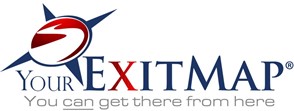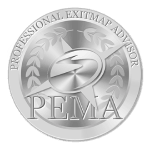 Your ExitMap Blog Contributor
Your ExitMap Blog Contributor
Exit Planning Articles by John F. Dini, CBEC, CExP, CEPA

 John F. Dini, CBEC, CExP, CEPA
John F. Dini, CBEC, CExP, CEPAPresident, MPN Incorporated
Complete an MPN Inc. Exit Readiness Assessment
John F. Dini develops transition and succession strategies that allow business owners to exit their companies on their own schedule, with the proceeds they seek and complete control over the process. He takes a coaching approach to client engagements, focusing on helping owners of companies with $1M to $250M in revenue achieve both their desired lifestyles and legacies.
Recent Articles posted by John F. Dini
| Recent Articles posted by John F. Dini |
Impressions of Value in Exit Planning Business owners, advisors, and buyers frequently have widely different impressions of value when it comes to a business. The Pepperdine Private Capital Markets Survey canvasses intermediaries who sell privately held Main Street and mid-market companies. One question is about the obstacles that prevented the sale of a business. The number one response is “Owners’ unreasonable expectations of value.” That may be self-serving or an excuse. Nonetheless, valuation is a sensitive subject. Many owners have worked in the business for 30 or 40 years. They assume it will fund their next 20 years of retirement. Their target price is set only by their desired lifestyle after ... Read more Business owners, advisors, and buyers frequently have widely different impressions of value when it comes to a business. The Pepperdine Private Capital Markets Survey canvasses intermediaries who sell privately held Main Street and mid-market companies. One question is about the obstacles that prevented the sale of a business. The number one response is “Owners’ unreasonable expectations of value.” That may be self-serving or an excuse. Nonetheless, valuation is a sensitive subject. Many owners have worked in the business for 30 or 40 years. They assume it will fund their next 20 years of retirement. Their target price is set only by their desired lifestyle after ... Read more "Work From Anywhere" Comes Full Circle Work from anywhere has been a necessity, an epithet, an obstacle, and an opportunity over the last 3 years. To paraphrase Aristotle’s axiom about Nature (“Horror Vacui”), business abhors a vacuum. Where one occurs, it is quickly filled. Work from anywhere started as a COVID-induced necessity. During the lockdowns of 2020-2021 (and longer in some places) we all had a crash course in video calling, VPNs, and virtual meetings. Employees quickly expanded the definition of anywhere. They tired of shunting the children off to a bedroom during conference calls, or using office-like backdrops to hide their kitchen cabinets. Soon they began changing their backgrounds to ... Read more Work from anywhere has been a necessity, an epithet, an obstacle, and an opportunity over the last 3 years. To paraphrase Aristotle’s axiom about Nature (“Horror Vacui”), business abhors a vacuum. Where one occurs, it is quickly filled. Work from anywhere started as a COVID-induced necessity. During the lockdowns of 2020-2021 (and longer in some places) we all had a crash course in video calling, VPNs, and virtual meetings. Employees quickly expanded the definition of anywhere. They tired of shunting the children off to a bedroom during conference calls, or using office-like backdrops to hide their kitchen cabinets. Soon they began changing their backgrounds to ... Read more Family Succession Planning: Who Gets the Office? Sometimes the most sensitive question in family succession planning is “Who gets the office?” Dad’s (or Mom’s) office is usually perceived as the center of authority by the employees and other family members. That is where you got called on the carpet, where you were informed of promotions, or where you took an insolvable problem. When a parent/CEO is handing off operating responsibility, there is often a lag, sometimes measured in years, between stepping back from the daily decisions and completely separating from the premises. There is great value in having that experience available for coaching, mentoring, or just to lend perspective on new ... Read more Sometimes the most sensitive question in family succession planning is “Who gets the office?” Dad’s (or Mom’s) office is usually perceived as the center of authority by the employees and other family members. That is where you got called on the carpet, where you were informed of promotions, or where you took an insolvable problem. When a parent/CEO is handing off operating responsibility, there is often a lag, sometimes measured in years, between stepping back from the daily decisions and completely separating from the premises. There is great value in having that experience available for coaching, mentoring, or just to lend perspective on new ... Read more Prepared for 2023 – Is This the Year to Exit? What does being prepared for 2023 mean for business owners who are approaching, at, or already beyond normal retirement age? It’s become fashionable to pontificate about the “inevitable” recession in the coming year. There is an argument for not talking ourselves into making it happen. Unfortunately, there are indisputable reasons why it is going to occur regardless of whether we discuss it or not. Inflationary stimulus (including $6 trillion of ”quantitative easing”) in the US, combined with over-dependency on Russian gas supply in Europe and falling industrial production from COVID lockdowns in China have created the proverbial slow-motion car wreck for the world economy. All ... Read more What does being prepared for 2023 mean for business owners who are approaching, at, or already beyond normal retirement age? It’s become fashionable to pontificate about the “inevitable” recession in the coming year. There is an argument for not talking ourselves into making it happen. Unfortunately, there are indisputable reasons why it is going to occur regardless of whether we discuss it or not. Inflationary stimulus (including $6 trillion of ”quantitative easing”) in the US, combined with over-dependency on Russian gas supply in Europe and falling industrial production from COVID lockdowns in China have created the proverbial slow-motion car wreck for the world economy. All ... Read more Owner Obstacles to an Exit Plan Owner obstacles to the implementation of an exit plan are often unconscious, but they can be dramatic. Their attachment to the business can be difficult to break. An advisor spends a lot of time and energy developing the vision for life after ownership in the hopes that it is far more attractive to them than their current role in the business. Yet no matter how well developed that vision is, or how well defined the action steps are, it isn’t unusual to find owners who behave in a way that ultimately sabotages the plan. Sometimes their actions are even intentional, but more often they aren’t. ... Read more Owner obstacles to the implementation of an exit plan are often unconscious, but they can be dramatic. Their attachment to the business can be difficult to break. An advisor spends a lot of time and energy developing the vision for life after ownership in the hopes that it is far more attractive to them than their current role in the business. Yet no matter how well developed that vision is, or how well defined the action steps are, it isn’t unusual to find owners who behave in a way that ultimately sabotages the plan. Sometimes their actions are even intentional, but more often they aren’t. ... Read more |
